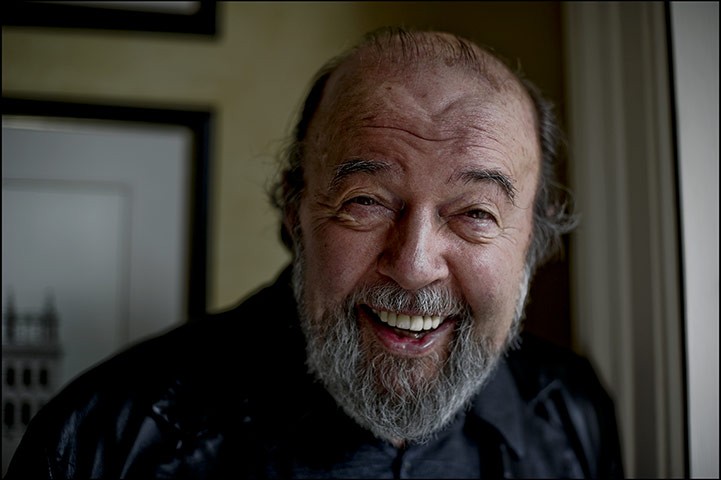
On Peter Hall as an inspirational figure for Pakistan’s thespian life

Pakistanis have been experimenting in and with theatre for most of their thespian existence, more in the light of the developments taking place in the West. The most inspiring figure there has been Peter Hall. Though his name was not taken in the same breath as Stanislavski, Brecht and Augusto Boal, his influence has been quite distinct, not directly but more in a subterranean manner in the form of the styles and various types of interpretations regarding the production of a play.
The theories and concept of the Theatre of the Oppressed by Augusto Boal, called variously Forum Theatre, Invisible Theatre and the Theatre of the Oppressed evolved in the workshops (Forum Theatre) and then took it to the street (Invisible Theatre), removing the distinction between the actor spectator. For him, it was more important to achieve a good debate than a good solution. He was arriving at a solution between the total involvement of the actor with the character as propagated by Stanislavski and the detachment with the character of the actor as propounded by Brecht.
Plays or producing a play appeared to be a simple affair. It only meant paying around with the interpretation of the script, the various spins put on the character and then some activity around lighting and sets. But then revolutions started hitting the very givens of theatre, like centrality of action on stage and the inconsistent development that eventually redefined what the ending of the play meant.
About fifty years ago, the world was small and defined, that is divided between the west and east. The various storms that have rocked the world in the last thirty odd years have been because of the illusion that the world is one big place to be understood and governed by one set of values and rules, while it may not be so. The various stages of development do demand their individual attention. People went to the west, saw the latest films and talked endlessly about them for months to receptive hosts at dinner parties. Theatre was prohibitive because of the costs. Sneaking and snivelling for cheaper subsidised rates made it possible for some very diehards to view a few theatre productions, and they bloated about it till their next trip abroad or such time they were able to mount a similar production here more in imitation of the avant-garde.
Some who studied abroad and then came back with the zest of doing something for their country got into the act of raising the cultural level of the masses back home.
They happened to be more exposed to what Peter Hall was doing. From 1955-1957, Hall directed the English-language premiere of Waiting for Godot and its success transformed his career overnight. It is said to have attracted the attention, among others, of Tennessee Williams, Harold Pinter and Jean Anouilh. He took over the Royal Shakespeare Company to realise his vision of a resident ensemble of actors, directors and designers producing both modern and classic texts, with a distinctive house style. The company not only played in Stratford but expanded into the Aldwych Theatre, its first London home.
Hall was appointed director of the National Theatre in 1973 and led the organisation for fifteen years until 1988.
The idea of National Theatre fascinated most in countries like Pakistan. It was often said that the state should take over the responsibility of promoting the arts and that national institutions of music, film, theatre, literature and the visual arts be prefixed with national. Quoting the Soviet example, the idea was considered to be very critical in fostering a cohesive national culture on which other imperatives like political unity and institutions were to be hinged. India too was quite enamoured of the centrally controlled and driven idea of a nation culture and the entire concept was vindicated, so to say. After the National Theatre was established in England with Laurence Olivier as its first director, in Pakistan too national institutions were formed like the Pakistan National Council of the Arts. The Institute of Folk Heritage now called Lok Virsa and much later the National Gallery actually were part of the same project.
Hall directed thirty-three productions for the National Theatre including the world premieres of Harold Pinter’s No Man’s Land and Betrayal, Peter Shaffer’s Amadeus and the London and Broadway premieres of Alan Ayckbourn’s Bedroom Farce, Orenstein, Animal Farm and Antony and Cleopatra.
Today, the stage, the character and the plot have been more at the mercy of the audiences. People sit in theatres with mobile phones and communicate their reactions as the play progresses which in turn moulds and improvises according to the wishes of the audience. The return to more conventional theatre and theatre as being purely interactive define the two extremes of contemporary thespian expression. Peter Hall would have cast his dice in favour of the experimental in theatre but only with studied carefulness so as to retain the formal contours of the form. He did not take it to the stage where it would disintegrate or morph into something else like losing its structural poise altogether.